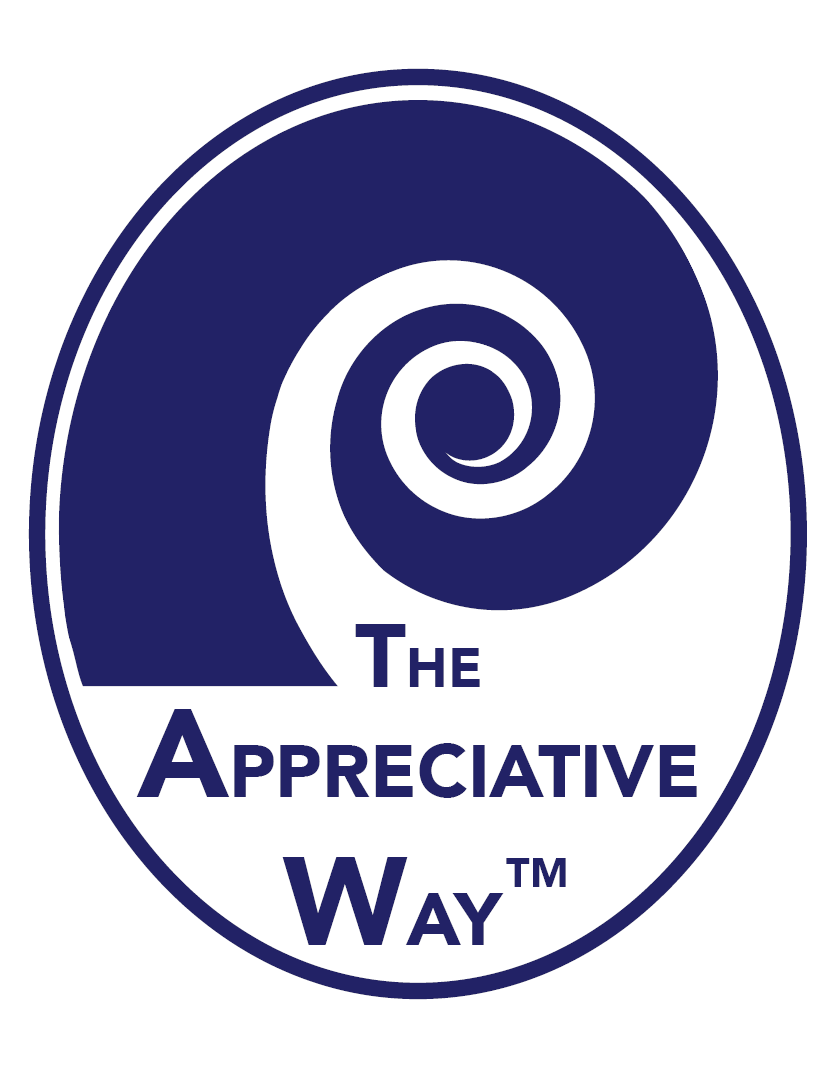

The Executive Coach
The Dr. Rob Voyle is a leader in the development and use of appreciative inquiry in coaching.
The Career Coach
The Dr. Kim Voyle is the Founder and Director of Pathfinders Career Services.
Appreciative Coaching
Our appreciative way of coaching uniquely blends Appreciative Inquiry, the work of Milton Erickson, and Contemplative Spirituality.
>>
Email Rob for a Free
Initial Coaching Consultation
Appreciative Inquiry and Business
|
Understanding Appreciative Inquiry |
|
| See Book Store for Appreciative Way Books and Resources |
Appreciative Inquiry in Business
GTE was one of the early major corporations to use Appreciative Inquiry in its organizational development. Tom White, GTE's President described the relationship between AI and problem solving:
"Appreciative Inquiry gets much better results than seeking out and solving problems. We often concentrate enormous resources on correcting problems. But when used continually over a long time, this approach leads to a negative culture.... or a slip into a paralyzing sense of hopelessness. Don't get me wrong. I'm not advocating mindless happy talk. AI is a complex science designed to make things better. We can't ignore problems - we just need to approach them from the other side."
Tom White, President of GTE Telephone Operations
Appreciative Inquiry 5D Spiral of Development
Appreciative Inquiry is an iterative, generative, process that uses collaborative inquiry and strategic visioning to unleash the positive energy within an Organization to enable a preferred sustainable future to be achieved.

The Five Phases of the Appreciative Process
1: Define: Awareness of the need for development.
Preparing for an appreciative process.
Committing to the Positive
2: Discover: What is the best that you have been?
Interview process and gathering of life-giving experience within your organization.
Valuing the Best of What Is
3: Dream: What is the world and the community calling us to be?
What would our organization look like in 5 years time if we lived and worked from our best?
Developing common images of the future.
Visioning the Ideal
4: Design: Aligning ideals, values, structures and mission
Developing achievable plans and steps to make the vision a reality.
Dialoguing What Needs to Be
5: Deliver: Achieving the Organization's Destiny.
Co-creating a sustainable, preferred future. Who, What, When, Where, How?
Innovating What Will Be
The Appreciative Approach
Appreciative Inquiry is based on the idea of discovering what works and gives life to an organization and building the organization on these life giving properties. David Cooperrider, the founder or Appreciative Inquiry describes it this way:
"More than a method or technique, the appreciative mode of inquiry
is a means of living with, being with and directly participating in the
life of a human system in a way that compels one to inquire into the
deeper life-generating essentials and potentials of organizational
existence."
David Cooperrider
The basic process is typically referred to as the 5D model of development as described above. Earlier literature also refers to a 4D model which did not include the "Define" phase as part of the process.
Other Models have included 4Is: Initiate, Inquire, Imagine and Innovate.
In essence the AI model uses a process of inquiry to discover people's best experience and use these experiences as a basis for imagining a future and designing the processes and structures that will make the imagined future a reality. This imagined future however is not just a fantasy because it is grounded in the experiences of the people involved.
What is noteworthy about the AI approach in comparison to other organizational development models is that it doesn't require a detailed analysis of problems or deficits. Consequently AI is less prone to initiating negative, blaming and judgmental atmospheres than problem focussed interventions. Although written specifically for a Church context the following pages present additional information for understanding the appreciative approach in contrast to the problem oriented approaches to organiational development: AI Philosophy and AI FAQs.
A one page handout of the 5D model for suitable for introducing AI to others is available in ".pdf" format at AI-model-org.pdf
Additional resources such as interview protocols are available at the AI-Resources page.

